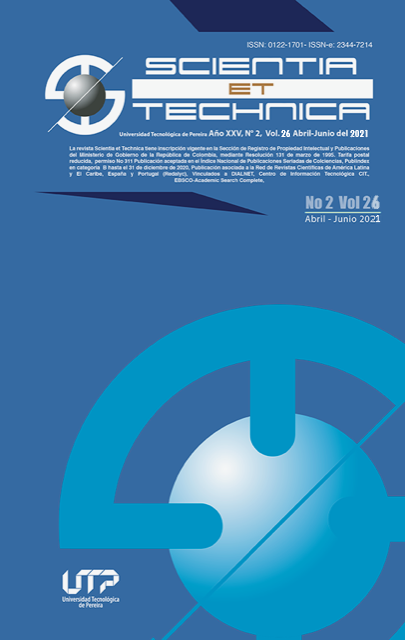Productive, Distributive, Dynamic, and Allocative Efficiency Improvement Model in Colombian Public Universities
Modelo de mejoramiento de la eficiencia Productiva, distributiva, de asignación y dinámica en las universidades públicas de Colombia
DOI:
https://doi.org/10.22517/23447214.24606Palabras clave:
Input-Output analysis, multivariate analysis, Quality of education, University, Data Envelopment Analysis.Resumen
The measurement of efficiency in public universities has been a topic of interest for researchers and state officials in Colombia; this article presents a model that transcends the view of productive efficiency, and expands it by including aspects of equity with distributive efficiency, of acceptance by society in the allocative efficiency, and finally with the dynamic efficiency includes the time variable, with which the state can measure the stability of the indicators of interest. For the design of the model, multivariate statistical techniques and non-parametric techniques were used, such as Structural Equation Models, Principal Component Analysis, Data Envelopment Analysis, and the Balanced Scorecard. Different ranks are obtained with which university improvement plans were identified, emphasizing public institutions with high quality accreditation. A Balanced Scorecard is proposed with the indicators extracted from the sector databases that met the conditions of the techniques used. This technique suggests a causal relationship between the indicators of distributive, productive, and allocative efficiencies, where the perspective of inclusion forms the basis of the scorecard, affecting the perspective of education and research and the latter influencing the perspective of impact. Finally, it is concluded that the public university sector has great challenges in terms of inclusion and measurement of the satisfaction of society, as well as showing improvement trends in the measured aspects as reflected in the DEA Malmquist index. As a result, a model is obtained for university administrators to identify the aspects in which they must invest the public budget that guarantees the greater multidimensional efficiency of Colombian public universities.
Descargas
Descargas
-
Vistas(Views): 454
- PDF (English) Descargas(Downloads): 309
Publicado
Cómo citar
Número
Sección
Licencia
Derechos de autor y licencias
La revista es de acceso abierto gratuito y sus artículos se publican bajo la licencia Creative Commons Atribución/Reconocimiento-No Comercial-Compartir bajo los mismos términos 4.0 Internacional — CC BY-NC-SA 4.0.
Los autores de un artículo aceptado para publicación cederán la totalidad de los derechos patrimoniales a la Universidad Tecnológica de Pereira de manera gratuita, teniendo en cuenta lo siguiente: En caso de que el trabajo presentado sea aprobado para su publicación, los autores deben autorizar de manera ilimitada en el tiempo, a la revista para que pueda reproducirlo, editarlo, distribuirlo, exhibirlo y comunicarlo en cualquier lugar, ya sea por medios impresos, electrónicos, bases de datos, repositorios, discos ópticos, Internet o cualquier otro medio requerido.
Los cedentes mediante contrato CESIÓN DE DERECHOS PATRIMONIALES declaran que todo el material que forma parte del artículo está totalmente libre de derechos de autor de terceros y, por lo tanto, se hacen responsables de cualquier litigio o reclamación relacionada o reclamación relacionada con derechos de propiedad intelectual, exonerando de toda responsabilidad a la Universidad Tecnológica de Pereira (entidad editora) y a su revista Scientia et Technica. De igual forma, los autores aceptan que el trabajo que se presenta sea distribuido en acceso abierto gratuito, resguardando los derechos de autor bajo la licencia Creative Commons Atribución/Reconocimiento-No Comercial- Compartir bajo los mismos términos 4.0 Internacional — CC BY-NC-SA 4.0.
https://creativecommons.org/licenses/by-nc-sa/4.0/
A los autores, la revista Scientia et Technica tiene la obligación de respetarle los derechos morales (artículo 30 de la Ley 23 de 1982 del Gobierno Colombiano) que se les debe reconocen a estos la paternidad de la obra, el derecho a la integridad y el derecho de divulgación. Estos no se pueden ceder ni renunciar.



